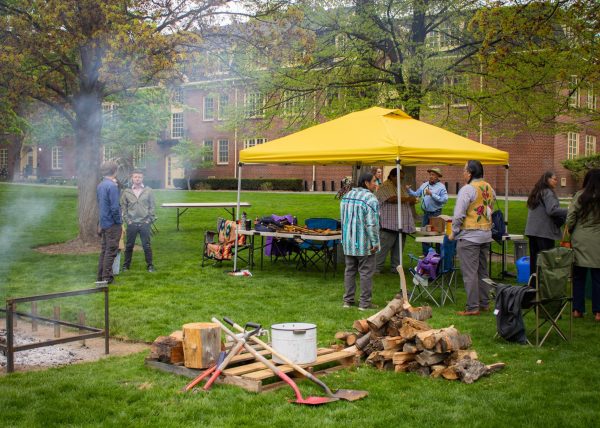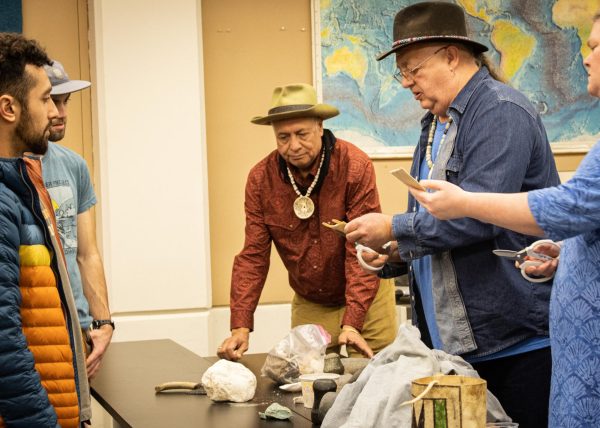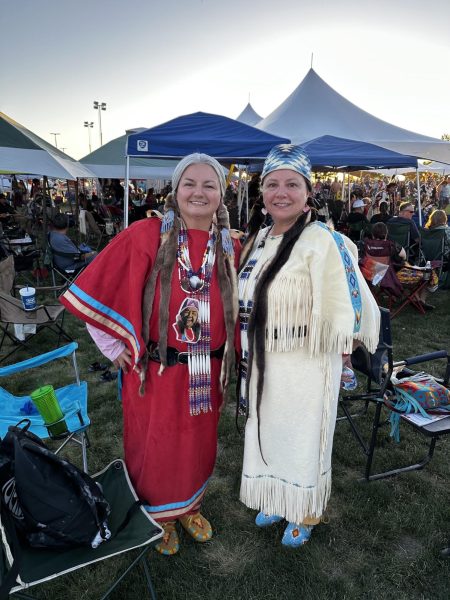“A testament to the hard work and desire to get us back to some point of normalcy”: CTUIR continues rapid vaccine rollout
March 18, 2021
As the neighboring Umatilla County struggles to increase vaccination rates, the Confederated Tribes of the Umatilla Indian Reservation, or CTUIR, continues a successful vaccine rollout that began in January.
In addition to offering vaccinations to all tribal members over the age of 16 and all residents who live on the reservation, CTUIR is offering vaccinations for family members of CTUIR employees as well as vendors and contractors who work for CTUIR entities. Beginning on March 17, CTUIR will provide 150 doses of the Pfizer vaccine to eligible area high school students.
Chuck Sams, Interim Executive Director of CTUIR, also serves as the incident commander of the Incident Command Team for the Umatilla tribes’ COVID-19 response.
“Starting back in October, we were told that we could either receive vaccines through our partnership with the State, Oregon’s health authority or we could go directly to Indian Health Services,” Sams said. “Because of the Treaty of 1855, we felt that it was the obligation of the United States to provide those vaccines directly.”
Taking direction from the Incident Command Team and the CTUIR Board of Trustees, CTUIR developed a three-phase vaccination plan. Yellowhawk Tribal Health Center received their first shipment of Pfizer vaccines in early December while the state of Oregon was still working to complete distribution plans. Inoculations began by Jan. 19, and by Jan. 20, Yellowhawk received over 2,050 doses of the COVID-19 vaccine.
CTUIR sits within Umatilla County, which has had 7,748 known COVID-19 cases, or around 9,550 cases per every 100,000 people. So far, almost 1,450 people of every 10,000 people in Umatilla County have been vaccinated, the second lowest county vaccination rate in Oregon. As of 2016, Umatilla County was ranked the second most vulnerable county in the state by the CDC’s social vulnerability index.
According to Sams, COVID-19 rates on the Umatilla Indian Reservation have been relatively low in comparison to the rest of the county. On the reservation, 8.3 percent of all COVID-19 tests have been positive, while Umatilla County has an overall test positivity rate of 13 percent.
“The work of Yellowhawk Tribal Clinic, the work of getting the word out for the safety and use of this vaccination, I think is a testament to the hard work and desire to get us back to some point of normalcy,” said Sams.
Lisa Guzman is the chief executive officer of Yellowhawk Tribal Health Center, which runs vaccine clinics on Tuesdays and Thursdays. The clinic has provided mass vaccination events in cooperation with the CTUIR government, Cayuse Technologies and Wildhorse Resort & Casino. To date, Yellowhawk has provided 2,100 people the Pfizer vaccination.
“We had to change the way our clinic operations look, and we had to develop new policy and procedures to provide testing, tracing and vaccinations,” Guzman said. “We had to develop metric systems that aligned with the state because Oregon health authorities are monitoring our COVID cases, and we had to increase our communication with the county, Oregon health authorities and IHS. The tribal clinic provides multiple reporting to three major entities when we receive these vaccinations.”
She listed the two-day mass vaccination event put on by Yellowhawk in late February as a success. 18 Oregon National Guards, half of whom were medics, aided in the two-day event that vaccinated 932 people.
Guzman also emphasized the detailed planning that goes into administering vaccines.
“When a patient goes in to get their shot, what they see is just ‘I’m here to get the shot, I’m here twenty minutes,’” Guzman said. “But they don’t know all the vaccine development and how we have to do reporting on just one single dose. And when a person gets a Pfizer vaccine they have to monitor that first and the second dose. And so you get five or six doses out of the vial, and you have to time the thawing out of that vial, and you have to have trained staff to do that. So there’s a lot of detail that goes into running these clinics.”







